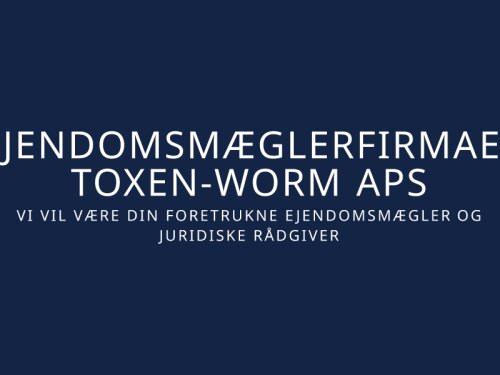Best Child Custody Lawyers in Ringe
Share your needs with us, get contacted by law firms.
Free. Takes 2 min.
Free Guide to Hiring a Family Lawyer
List of the best lawyers in Ringe, Denmark
About Child Custody Law in Ringe, Denmark
Child custody in Ringe is governed by Danish national family law with local implementation through municipal social services and the Danish Agency for Family Law - Familieretshuset. The law focuses on the child's best interest and regulates parental responsibility, the child’s residence, and visitation. Parents are normally encouraged to reach an agreement about custody and residence. If they cannot agree, Familieretshuset or the courts decide based on the child's welfare, age, and family circumstances. Local authorities in Faaborg-Midtfyn Municipality and local courts handle practical and legal steps for families in Ringe.
Why You May Need a Lawyer
Many custody situations can be handled by agreement or mediation, but you may need a lawyer when the case is contested, complex, or involves safety concerns. Common situations that call for legal help include disputes over which parent the child will live with, allegations of domestic violence or abuse, threats of relocation within Denmark or abroad, enforcement of visitation or contact orders, parental abduction, paternity or parental responsibility disputes, and cases involving child welfare interventions by the municipality. A lawyer helps explain legal rights, prepares court or Familieretshuset submissions, represents you in hearings, arranges evidence or expert assessments, and advises on options like emergency orders or modifying existing agreements.
Local Laws Overview
Key legal rules and authorities relevant in Ringe include the Parental Responsibility Act - in practice focusing on parental custody, residence, and visitation - and child protection rules under the Social Services Act which allow the municipality to intervene if a child's safety or wellbeing is at risk. The UN Convention on the Rights of the Child informs judicial assessments, and international issues may involve the Hague Convention on the Civil Aspects of International Child Abduction. Familieretshuset manages mediation, registration of custody agreements, and many administrative decisions about parental responsibility. If no agreement is reached administratively, family cases proceed to the civil courts, where judges assess the child's best interest, hear evidence, and may order expert evaluations or appoint a guardian ad litem for the child.
Frequently Asked Questions
What types of custody decisions are common in Denmark?
Decisions cover parental responsibility (forældremyndighed), where the child lives (bopæl), and visitation or contact (samvær). Parental responsibility can be joint or sole. Residence is usually decided so the child has stable living conditions. Visitation arrangements outline when and how the non-resident parent spends time with the child.
How is the child's best interest assessed?
Courts and Familieretshuset consider the child's physical and emotional needs, stability, relationship with each parent, the child's own views when age-appropriate, any history of abuse or neglect, and practical factors like school and social networks. The aim is to promote the child’s welfare rather than favour a parent based on adult interests.
Can I move with my child to another part of Denmark or abroad?
Moving within Denmark normally requires agreement between parents if the move materially affects the other parent’s contact. Relocating abroad is more complex and often requires consent from the other parent or a court order. If a move would significantly change the child’s residency or contact arrangements, you should seek legal advice before proceeding.
What happens if the other parent refuses to follow a custody or visitation order?
If a parent ignores a legally enforceable order, you can ask Familieretshuset or the courts to enforce the order. Enforcement measures may include formal orders, fines, or supervised visitation arrangements. In urgent situations where a child’s safety is at risk, involve the police and municipal social services immediately.
How are a child’s views taken into account?
Children who are old enough to form an opinion are normally asked about their preferences. The weight given to the child’s views depends on their age, maturity, and the way the views were obtained. Courts may use interviews, written statements, or a child-focused assessment to capture the child’s perspective.
What if I suspect the child is being abused or neglected?
Contact the municipality social services (socialforvaltningen) in Faaborg-Midtfyn Municipality and the police immediately. The municipality can initiate child protection measures and coordinate with Familieretshuset and the courts. Legal representation is important in parallel, especially if custody or residence must be changed urgently.
How long do custody cases usually take?
Timeframes vary. Simple agreements or mediated solutions can be resolved in weeks to a few months. Contested cases that go to court, involve expert assessments, or require child welfare investigations often take several months and sometimes longer. Urgent welfare cases may proceed more quickly through emergency measures.
Will I need to pay for a lawyer and can I get legal aid?
Lawyer fees depend on the complexity of the case and the lawyer’s fee structure. You may be eligible for state legal aid - fri proces - depending on your income and the case type. Even when full legal aid is not available, some lawyers offer fixed-fee consultations or phased work. Ask about costs and funding options at your first meeting.
What is Familieretshuset and how does it help?
Familieretshuset is the national agency that handles parental responsibility, residence, and visitation matters. It offers mediation, registers agreements, and can make administrative decisions if parents cannot agree. Many cases are settled or clarified through Familieretshuset before reaching the courts.
How do I find a family law lawyer in Ringe?
Look for lawyers who specialise in family law and have local knowledge of Faaborg-Midtfyn procedures. Ask about experience with custody disputes, mediation, emergency orders, and international cases if relevant. Initial consultations help you assess fit, costs, and likely strategy. You can also contact the Danish Bar association for referrals and check if the lawyer has experience in child-focused court proceedings.
Additional Resources
Helpful local and national bodies include Familieretshuset for custody, residence and visitation matters; Faaborg-Midtfyn municipal social services for child welfare concerns in Ringe; the local police for emergencies or criminal matters; the district court for contested family litigation; the Danish Bar association for lawyer referrals; and national or local child welfare organisations that provide counselling and support services. Non-governmental organisations that focus on children and families may provide guidance, counselling and emergency support. For international issues, authorities that handle the Hague Convention and related cross-border procedures are relevant.
Next Steps
1. Gather documents - collect birth certificates, residence documents, school information, communications between parents, and any records that show concerns about the child’s welfare.
2. Contact Familieretshuset - consider mediation or registering an agreement if safe and practical.
3. If safety is an issue - contact police and municipal social services immediately and seek urgent legal help.
4. Arrange a consultation with a family law lawyer - prepare questions about likely outcomes, costs, timeframes, and evidence you will need.
5. Check eligibility for legal aid - ask your lawyer or municipal advice services about fri proces or other support.
6. Keep the child’s best interest front and centre - document routines, caregiving arrangements, and the child’s needs to help professionals make informed decisions.
If you are unsure where to start, a short call to Familieretshuset or the municipality social services team in Faaborg-Midtfyn can clarify immediate options and referrals for legal assistance in Ringe. This guide is informational and does not replace personalised legal advice from a qualified lawyer.
Lawzana helps you find the best lawyers and law firms in Ringe through a curated and pre-screened list of qualified legal professionals. Our platform offers rankings and detailed profiles of attorneys and law firms, allowing you to compare based on practice areas, including Child Custody, experience, and client feedback.
Each profile includes a description of the firm's areas of practice, client reviews, team members and partners, year of establishment, spoken languages, office locations, contact information, social media presence, and any published articles or resources. Most firms on our platform speak English and are experienced in both local and international legal matters.
Get a quote from top-rated law firms in Ringe, Denmark — quickly, securely, and without unnecessary hassle.
Disclaimer:
The information provided on this page is for general informational purposes only and does not constitute legal advice. While we strive to ensure the accuracy and relevance of the content, legal information may change over time, and interpretations of the law can vary. You should always consult with a qualified legal professional for advice specific to your situation.
We disclaim all liability for actions taken or not taken based on the content of this page. If you believe any information is incorrect or outdated, please contact us, and we will review and update it where appropriate.









